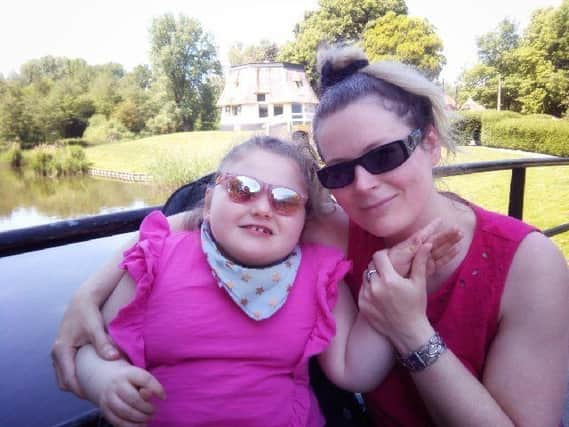Cannabis oil mother feels ‘trapped living abroad’ for daughter


Julie Galloway left Scotland with seven-year-old Alexa, who has epilepsy and a rare neurological condition, almost a year ago to live with relatives in Rotterdam.
She says she is still living out of a suitcase and her savings are almost gone – but she fears that returning home without the medication would put her daughter’s life in danger.
Advertisement
Hide AdAdvertisement
Hide AdMs Galloway, from Cumbernauld said: “I feel like a refugee forced to live abroad to save my child. I have no other option. I miss my family. My mother and my sister are in Scotland – but my child comes first.
“I want to come home but I am terrified the medication will be confiscated.
“I am struggling to pay for it and I know this can’t go on forever.”
A version of cannabis oil has been approved for use in the UK, but doctors have been unwilling to prescribe it for Alexa.
Advertisement
Hide AdAdvertisement
Hide AdMs Galloway 49, told the BBC Scotland website, she decided to travel to the Netherlands last July to seek the treatment after watching her daughter deteriorate for six months.
She said: “Alexa was diagnosed with epilepsy at the age of five.
“She also suffers from a rare neurological condition called Rett Syndrome. She was having seizures at home but then ended up in hospital.”
The prescribing of cannabis-derived medicines has been allowed in Scotland, since 1 November 2018.
Advertisement
Hide AdAdvertisement
Hide AdHowever, medicinal cannabis is currently unlicensed – so it can only be prescribed if a patient has a need that cannot be met by licensed medicines. It cannot be prescribed by GPs.
This has to be done by a specialist consultant, for example in neurology or paediatrics.
One of the arguments against the use of the medication is that there have not been satisfactory drug trials to prove its safety and effectiveness.
As a result, it is rarely prescribed.
Ms Galloway said Alexa deteriorated “very quickly” on medication which was causing serious side-effects.
Advertisement
Hide AdAdvertisement
Hide AdShe said: “I witnessed her lose basic skills such as standing and drinking from a cup as well as walking, within weeks of being in hospital.
“I knew the medication wasn’t working but doctors kept her on it anyway despite her still having daily seizures.”
Ms Galloway’s fundraising page is www.justgiving.com/crowdfunding/alexashope